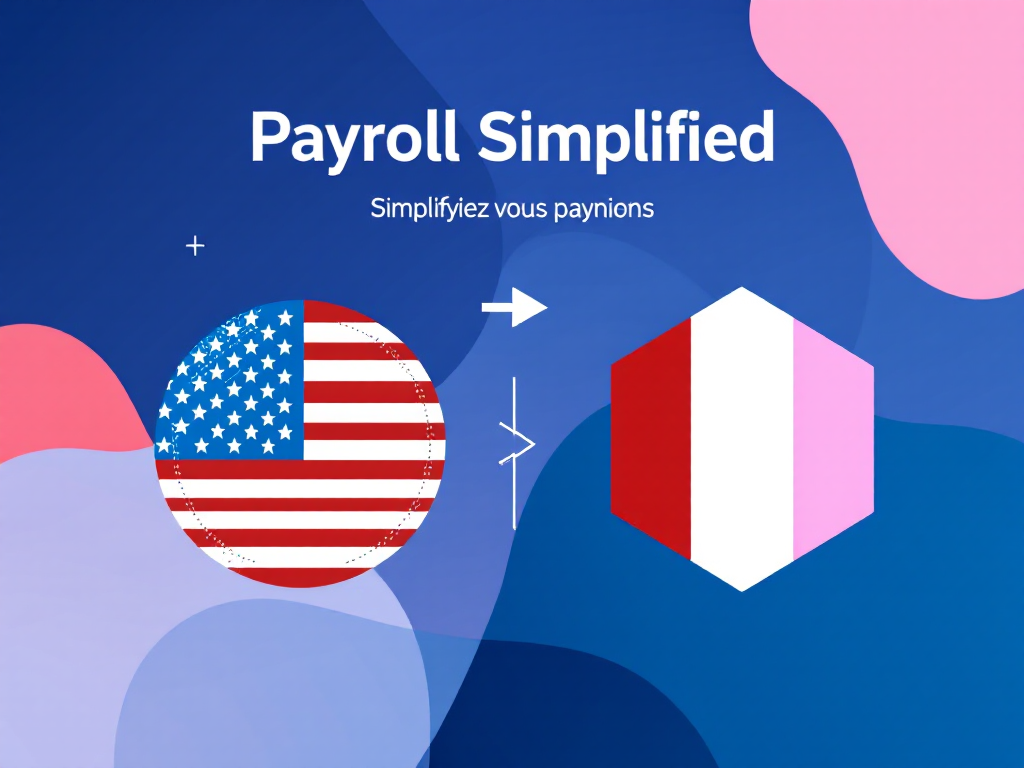Introduction: A Tale of Two Payrolls
Imagine a thriving tech startup, TechWave, with headquarters in San Francisco and a new office in Paris. As the company scales, its success hinges on managing payrolls effectively for its diverse workforce. However, the team quickly realizes that handling payroll in both the US and France is no small feat. They are faced with the daunting task of navigating different tax systems, understanding unique labor laws, and ensuring timely compensation for employees in both regions. It’s a complex challenge, but one that’s increasingly common in today’s globalized business landscape.
Enter PayInOne, a platform designed to streamline these complexities. By providing a comprehensive solution for managing cross-border payrolls, PayInOne helps companies like TechWave maintain compliance, reduce administrative burdens, and focus on growth rather than getting bogged down in payroll intricacies.
Context & Relevance: The Importance of Understanding Payroll Differences
In an era where businesses are expanding their footprints across borders, understanding diverse payroll systems is crucial. Companies with international operations must navigate various regulatory landscapes, which can significantly impact their financial health and employee satisfaction. The globalization wave and the surge in remote work have amplified the need for efficient payroll management, making it a critical component of successful international operations.
The United States and France serve as prime examples of the diversity in payroll systems. While both countries are economic powerhouses, their approaches to payroll are starkly different. The US system is characterized by its complexity, with federal, state, and local taxes influencing payroll processes. In contrast, France’s payroll system is heavily influenced by social contributions and employee benefits, reflecting the country’s strong social welfare policies.
Challenges & Opportunities in US vs France Payroll
Managing payroll in the US and France presents unique challenges and opportunities. In the US, companies must ensure compliance with a multitude of tax regulations, which can vary significantly between states. For instance, California’s payroll requirements differ greatly from those in Texas or New York, making it crucial for businesses to stay informed about local regulations. Additionally, the frequency of payroll — typically bi-weekly or semi-monthly — requires consistent administrative oversight.
In France, the challenges often revolve around social security contributions and understanding the intricacies of the French labor code. Employers must navigate mandatory contributions to health insurance, pension plans, and unemployment insurance, which can be a complex process for companies unfamiliar with the system. However, these challenges also present opportunities. By effectively managing payroll, companies can realize cost savings through tax credits and incentives, and attract top talent by offering competitive compensation packages that comply with local norms.
The variations in payroll systems not only affect large corporations but also small and medium-sized enterprises (SMEs), each with its own set of challenges. While larger companies might have dedicated teams to handle payroll complexities, SMEs often face resource constraints, making platforms like PayInOne invaluable for ensuring compliance and efficiency.

Expert Insights & Best Practices
What the Experts Say
“Efficient payroll management is the backbone of successful international operations. It’s not just about paying employees; it’s about ensuring compliance, maximizing efficiency, and leveraging payroll as a strategic tool,” says Emily Roberts, a global payroll expert at PayInOne.
Pitfalls to Avoid
- Misunderstanding Local Labor Laws: Each country has its own set of labor laws. In France, for instance, companies must adhere to strict employment contracts and employee rights, which are integral to payroll processes.
- Inconsistent Payroll Schedules: Aligning payroll schedules with local practices and expectations is crucial for maintaining employee satisfaction and avoiding legal issues.
- Ignoring Exchange Rate Fluctuations: For companies paying employees in different currencies, monitoring exchange rates is essential to prevent unexpected costs.
To navigate these complexities, companies should consider automating payroll processes and utilizing compliance checklists. Platforms like PayInOne offer these features, helping businesses manage international payrolls with ease and accuracy.
Real-World Case Studies: Successful Payroll Management
Consider the story of GlobalTech, a multinational corporation with operations in both the US and France. Faced with the challenge of managing payrolls across different legal and financial environments, GlobalTech turned to PayInOne for a solution. The platform enabled GlobalTech to automate payroll processes, ensuring compliance with local regulations in both countries. As a result, the company saw a 30% reduction in administrative costs and achieved a 100% compliance rate with tax and social security contributions.
Through PayInOne’s robust reporting tools, GlobalTech was able to gain insights into payroll expenses, allowing for more strategic financial planning. The company also benefited from PayInOne’s support in navigating the complexities of the French labor code, ensuring that all employee benefits and contributions were correctly managed.
Looking Ahead: The Future of Payroll Systems
As digital currencies and blockchain technologies gain traction, the landscape of payroll systems is set to evolve. These emerging technologies promise to simplify international transactions, reduce costs, and enhance security in payroll processes. Moreover, the adoption of e-wallets and digital payment platforms is likely to increase, providing businesses with more flexible and efficient ways to manage payrolls globally.
For businesses looking to future-proof their payroll systems, staying informed about regulatory changes and technological advancements is crucial. Embracing digital transformation and integrating platforms like PayInOne into payroll strategies will be key to maintaining a competitive edge in the global marketplace.
Conclusion & Call to Action
Understanding the differences in payroll systems between the US and France is not just essential for compliance but a strategic advantage in today’s interconnected world. By leveraging platforms like PayInOne, businesses can simplify their global operations, ensuring efficiency and compliance across borders.
Are you ready to tackle the complexities of international payroll and streamline your operations? Discover how PayInOne can transform your payroll management and help you focus on what matters most — growing your business. Explore PayInOne today.
